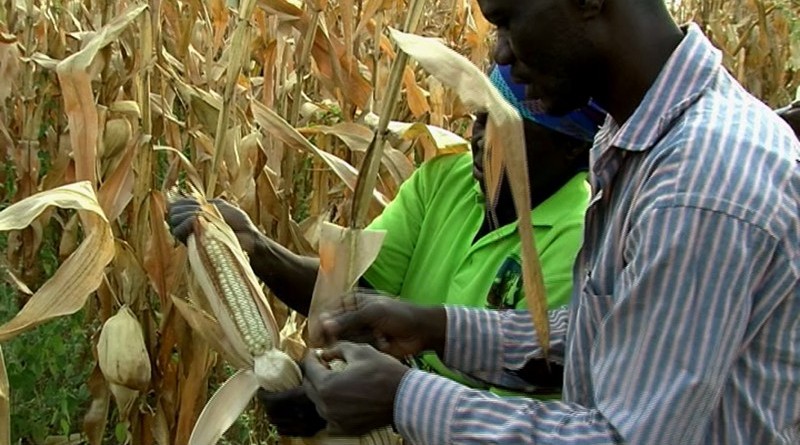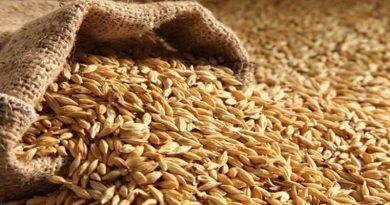The future of agricultural access to finance with lessons learnt in Tanzania, Ghana, Mali, and Nigeria
A pilot to increase access to finance. In 2019, SCOPEinsight and AGRA began a project to graduate agribusinesses and link them to finance. The project was conducted in four countries: Tanzania, Ghana, Mali, and Nigeria. Three to four agribusinesses were assessed per country. The agribusinesses were assessed initially in 2019, then they were given targeted training and capacity building to increase their professionalism based on the results of their baseline assessment.
In 2021, the agribusinesses were reassessed to show what improvements they had made, thanks to the training and capacity building they received. The data from their reassessments was used to fill out the bankability metrics, which were developed in 2021 by SCOPEinsight, AGRA, and the Center for Financial Inclusion (CFI). These metrics contain the information on agribusinesses that banks require for their pre-due diligence process. The bankability metrics with the reassessment data were shared with multiple banks and other non-bank financial institutions and then discussed in follow-up meetings.
Creating a lasting business development ecosystem. The four local organizations who assessed and trained the agribusinesses are all members of the SCOPEinsight Local Expert Network (LEN). The LEN is part of an effort by SCOPEinsight and AGRA to create a more effective business development services (BDS) ecosystem. By combining SCOPEinsight’s global standards and the local expertise of like-minded businesses, the LEN ensures that international capacity builders can efficiently implement their projects while strengthening the local economy. Working with standardized tools allows for benchmarking and data comparison, but localizing with expert knowledge allows for customization to the environment. This combination is crucial to the LEN’s success.
Working with the LEN to create a bankable agribusiness pipeline. As part of the pilot project, SCOPEinsight and the Local Experts used SCOPE assessment data to create a pipeline of bankable agribusinesses for financial institutions. The data from SCOPE assessments can be used in many ways, including creating targeted BDS and benchmarking agribusinesses. Another potential usage of SCOPE data is the bankability metrics, which were designed to be used alongside SCOPE assessments.
In the pilot, the bankability metrics were filled out using the SCOPE assessment data and then shared individually with local financial institutions. However, for future usage, SCOPEinsight has developed a Portal that financial institutions can use to discover agribusinesses which fit their loan profiles and risk appetite. The Portal will contain basic information on agribusinesses and their filled-out bankability metrics. This will provide financial institutions what they need for their pre-due diligence process. This portal will also allow agribusinesses to directly communicate with financial institutions more easily. Overall, the Portal will help reduce information asymmetry between the demand and supply sides of finance for agribusinesses by using a reliable methodology that is jointly agreeable for stakeholders of BDS and financial ecosystems.
Promising successes from PearlMutual in Nigeria. In Nigeria, PearlMutual Consulting Limited conducted the assessments and capacity building for the agribusinesses. PearlMutual is a leading Nigerian business advisory firm with more than ten years of experience delivering various Capital Raising, Financial Advisory, and Executive Training services. PearlMutual has also been a member of the LEN since 2021.
As part of the project, PearlMutual had meetings with multiple local banks in Nigeria to explain how the data from SCOPE assessments can help in the pre-due diligence process for agribusinesses. PearlMutual’s status and connections in the banking industry helped them to open doors for the project. As a result of these meetings, PearlMutual is currently in the process of signing an MOU with Sterling Bank, who now intends to use SCOPE data in their pre-due diligence process with their SWAY AgFin product. PearlMutual is also working to recreate this success with other local banks.
The business case for the graduation process and pipeline. While the SCOPE Portal is still a work in progress, SCOPEinsight and AGRA have many plans of how the graduation system and pipeline will work in practice. The specifics of payment for the assessment and capacity building will depend on several factors. These include the level of development of the financial and BDS ecosystem, the size and type of agribusinesses, the nature of the financial institutions’ partners, the presence of conveners and donors, etc. For example, while some agribusinesses cannot afford to pay for their own assessments and training, others can afford to pay either part of the sum or the entirety of it. The agribusinesses that cannot afford to cover the costs at all will rely on donor funds, while mid-level agribusinesses will work together with external funds to cover the cost, and higher-level agribusinesses will be able to pay for it on their own.
Once the agribusinesses have been assessed and their data has been put into the bankability metrics, they will be added to the SCOPE Portal. Here, financial institutions will pay to access the Portal and view their potential pipeline. Various financial institutions have already indicated that the data in the bankability metrics would save them time and money on their pre-due diligence process, and they have confirmed their willingness to pay for a pipeline.
Next steps towards greater access to finance. The completed pilot project has shown that there is a great deal of promise in the deployment of the bankability metrics as a cornerstone for the establishment of a sustainable BDS ecosystem. The next step is to increase their usage and to introduce them to more financial institutions so that they can become a ‘hygiene factor’ in the industry. The SCOPE Portal also needs to be piloted and further refined, to determine how best to display the data for the bankable agribusinesses. With the combination of SCOPEinsight’s standardized data and tools, AGRA’s global connections and standing, and the local knowledge and expertise of Local Experts like PearlMutual, an ecosystem can be created where agribusinesses, BDS providers, and financial institutions can all work together and communicate effectively.
Lessons learned so far. A few important lessons have been learned through the just ended pilot:
- A strong, reliable, and internationally proven methodology is important in gaining momentum from the agribusinesses and obtaining confidence from the financial sector. In this project, the SCOPE Methodology and the bankability metrics filled this role.
- A strong understanding of the local environment through the LEN brings agility in BDS provision in different markets with different local realities.
- The neutral convener and catalyst roles played by AGRA proved critical to connect the dots and reduce frictions. This was done by aligning both the supply and demand side on one side and by facilitating market development through continuous support through the entire value chain.
- It is important to spend enough time in raising awareness and increasing the confidence of the financial sector on the benefits of the bankability metrics.
- The economics of the bankability portal needs to be finetuned to make it a seamless and go-to tool for sourcing agribusiness deals and closing the gap on the unmet demand for financial services in agriculture finance.




